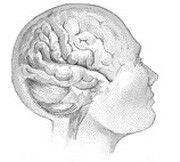Deep Brain Stimulation in Older Patients: Safe
In Parkinson’s disease (PD), medication-based therapy efficacy wanes and “wearing off†symptoms develop over time.

In Parkinson’s disease (PD), medication-based therapy efficacy wanes and “wearing off” symptoms develop over time.
Deep brain stimulation (DBS) is an emerging major treatment modality in PD, targeting the ventral intermediate thalamic nucleus for tremor-dominant PD and the subthalamic nucleus and the globus pallidus interna for akinetic-rigid disease.
DBS acts as an adjunctive measure with medication to reduce dyskinesia and daily doses; it does not replace medication.
An article published ahead-of-print in World Neurosurgery indicated that DBS effectively improved motor function and levodopa equivalence daily doses (LEDD) in Parkinson’s disease patients 70 years and older.
This single center retrospective study used the Unified Parkinson's Disease Rating Scale III to measure motor function. The researchers quantified medication requirement with levodopa equivalent daily doses.
DBS decreased average LEDD from 891.94 mg to 559.6 mg and average doses per day from 11.54 to 7.97. Follow-up beyond two years was rare but the researchers predicted DBS’ efficacy to diminish over time.
Patients’ UPDRS-III scores decreased from 31.79 pre-operatively to 15.5 postoperatively. This reduction in motor symptoms is consistent with prior studies in all and older patients.
Adverse operative outcomes (e.g. hardware infections, gait disturbances, and speech problems) were similar to the rates experience in younger cohorts. The study authors call for long-term follow-up beyond the average 23.5 month follow-up currently considered standard in studies.
Careful selection of surgical candidates allows access to the motor function and dose reduction benefits of deep brain stimulation in patients over 70 years old.